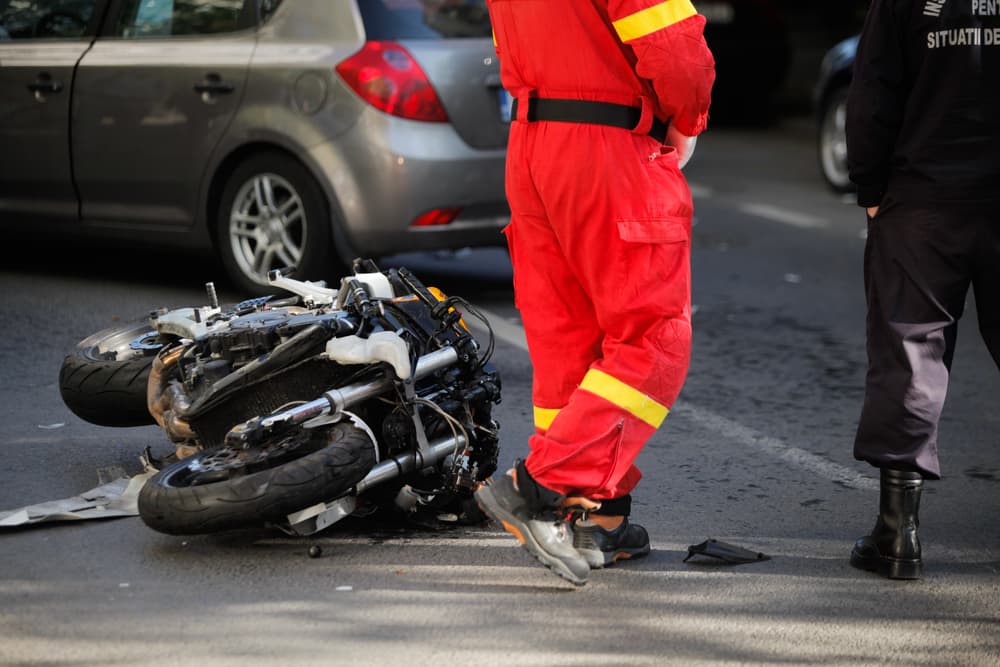What Are the Causes of Motorcycle Accidents?

Riding a motorcycle offers an unparalleled sense of freedom. You have an intimate connection with the environment, a heightened awareness of every curve and contour of the road. It’s not the destination you’re after, it’s the journey itself. But behind the thrill and freedom of riding lies a landscape fraught with risks and potential hazards.
Because riders are far less protected than riders of cars or trucks, they are at greater risk of serious or fatal injuries in the event of a crash. If someone else caused your accident, they shouldn’t stick you with paying for your medical bills and other losses. In this blog, we’ll explore the causes of motorcycle accidents, and how an Austin motorcycle accident lawyer can protect your rights and recover maximum compensation if you or a loved one is involved in a motorcycle crash.
Why Is It Important to Understand Why Motorcycle Accidents Happen?
Understanding why motorcycle accidents happen can improve road safety and help minimize the risks associated with two-wheeled travel. It allows policymakers to implement targeted measures that address specific contributing factors, leading to the development of more effective road safety regulations.
For motorcyclists, this knowledge encourages defensive riding practices and enhances overall awareness of potential hazards. But also, understanding the factors that contributed to the accident can help a motorcycle accident victim build a strong case against the negligent party because motor vehicle operators are often the cause or are significantly responsible for collisions with motorcycles.
Common Causes of Motorcycle Crashes
Here’s a look at how car and truck operators often cause motorcycle crashes:
- Failure to Yield: Drivers may fail to yield the right of way to motorcycles, especially at intersections, leading to collisions.
- Misjudgment of Speed: Underestimating the speed of an approaching motorcycle is a frequent issue, resulting in situations where drivers pull out in front of riders.
- Distracted Driving: Distracted driving such as texting, talking on the phone, or adjusting in-car entertainment systems can divert a driver’s attention from the road, making it harder to notice motorcycles.
- Lane Changes Without Checking Blind Spots: Drivers changing lanes without thoroughly checking blind spots may inadvertently collide with a motorcyclist in their path.
- Opening Car Doors: In urban areas, parked cars pose a risk when occupants open doors without checking for oncoming motorcycles, leading to accidents.
- Driving Under the Influence: Impaired drivers are a significant hazard. Alcohol or drugs can impair judgment and reaction time, increasing the likelihood of accidents involving motorcycles.
- Aggressive Driving: Aggressive behaviors such as tailgating or cutting off motorcycles can create dangerous situations, escalating the risk of collisions.
- Left-Turn Accidents: Many motorcycle accidents occur when other vehicles make left turns in front of oncoming motorcycles. The driver might misjudge the speed or distance of the motorcycle.
Motorcycles Are More Susceptible to Crashes

Motorcycles are more susceptible to being struck by cars on the road. According to the National Highway Traffic Safety Administration (NHTSA), motorcycles are involved in fatal crashes 27 times more often than cars per mile traveled.
Several factors increase a motorcyclist’s vulnerability on the roadways, such as:
- Size and Visibility: Motorcycles are smaller and less visible than cars or trucks. This reduced size makes it easier for other motorists to overlook them, especially in blind spots or when changing lanes.
- Lack of Structural Protection: Unlike cars or trucks, motorcycles lack the protective structure of an enclosed vehicle. In the event of a collision, riders are directly exposed to the impact, increasing the risk of severe injury.
- Maneuverability: Motorcycles are more maneuverable and can change lanes or directions quickly. This makes them less predictable to other motorists, increasing the likelihood of accidents.
- Road Conditions: Motorcycles are more affected by adverse road conditions such as potholes, uneven surfaces, or slippery roads. These conditions can be more hazardous for motorcyclists and contribute to accidents.
- Misjudgment of Speed: Due to their smaller size, motorcycles can appear to be traveling slower or farther away than they actually are. This misjudgment of speed by other drivers can lead to intersection collisions or difficulty in accurately gauging the distance between vehicles.
- Vehicle-related factors: Mechanical failures or defects in the motorcycle itself can lead to accidents.
What Makes Motorcycle Accidents So Dangerous?
Motorcycle accidents are particularly dangerous due to a combination of factors that stem from the inherent characteristics of motorcycles and the limited protection they offer to riders:
- Vulnerability of Riders: Unlike occupants of cars or trucks, motorcyclists are not surrounded by a protective structure. Riders are directly exposed to the impact of a collision, leading to a higher risk of severe injuries or fatalities.
- High Risk of Ejection: The design of motorcycles makes riders more susceptible to being thrown from the bike upon impact. Ejection from the motorcycle significantly increases the likelihood of serious injuries.
- Limited Protection Gear: While riders can wear protective gear such as helmets and padded clothing, they do not have the same protections as occupants in enclosed vehicles. This lack of protection makes injuries more likely in a collision.
10 Steps to Take After a Motorcycle Crash
A motorcycle crash is undoubtedly distressing, but taking the right steps afterward can improve your safety and well-being, and can protect evidence to support your claim for compensation. Here’s a guide on what to do after a motorcycle crash:
1. Ensure Safety
Move to a safe location, if possible, away from traffic and potential hazards. Turn on hazard lights and use any available warning devices to alert other motorists.
2. Check for Injuries
Assess yourself and others for injuries. Call for emergency medical assistance if anyone is hurt. Do not attempt to move seriously injured individuals unless there is an immediate danger.
3. Call Emergency Services
Dial emergency services (911 or the local emergency number) to report the accident. Provide accurate information about the location, injuries, and the number of people involved.
4. Exchange Information
Exchange contact, insurance, and registration information with the other parties involved in the crash. Obtain contact information from any witnesses.
5. Document the Scene
Take photos of the accident scene, including vehicle positions, damages, and any relevant road conditions. Note the names and badge numbers of responding police officers.
6. Do Not Admit Fault
Avoid admitting fault or making statements that anyone can use against you later. Stick to the facts when discussing the accident with police, insurance adjusters, and others.
7. Contact Your Insurance Company
Report the accident to your insurance company as soon as possible. Provide accurate and detailed information about the incident, but do not admit fault or provide any statements.
8. Seek Medical Attention
Even if you don’t believe your injuries are severe, undergo a medical evaluation. Some injuries may not immediately manifest. Adhere to any recommended follow-up medical treatments and appointments. And, keep a detailed record of your recovery process.
9. Preserve Evidence
Keep a record of all medical treatments, expenses, and communication with insurance companies. Preserve any evidence related to the accident, such as damaged gear or clothing, photographs, and eyewitness accounts.
10. Consult an Attorney
Consult a personal injury attorney as soon as you can. A lawyer will explain your rights and options, especially if disputes arise regarding liability or compensation.
Contact a Motorcycle Accident Attorney Today

Ted R. Lorenz, Motorcycle Accident Attorney in Austin, TX.
The journey toward road safety for motorcyclists begins with knowledge and awareness. By understanding the common causes of motorcycle accidents, we empower ourselves to make informed decisions and advocate for change.
As a law firm committed to the well-being of our community, our personal injury attorneys stand ready to support you through your motorcycle accident claim and provide you with legal guidance in your journey to justice. We will navigate the legal landscape for you and ensure that your path to recovery meets the justice you deserve.
Contact the motorcycle accident lawyers at Lorenz & Lorenz Accident & Injury Lawyers PLLC, today for your free consultation, and let’s discuss your case.
